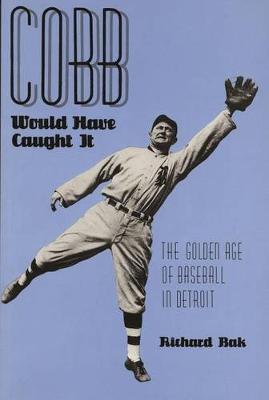Great Lakes Books
2 total works
On April 28, 1896, baseball fans traveled in horse-drawn buggies to watch the Detroit Tigers play their first baseball game at the site on the corner of Michigan and Trumbull Avenues. Starting out as Bennett Park, a wooden facility with trees growing in the outfield, Tiger Stadium has played a central role in the lives of millions of Detroiters and their families for more than a century.
During the last century, millions of fans have come to Michigan and Trumbull to watch the Tigers' 7,800 home games, as well as to attend numerous other sporting, social, and civic events, including high school, collegiate, and professional football games, prep and Negro league baseball contests, political rallies, concerts, and boxing and soccer matches.
A companion to the narrative history, almost two hundred rare photographs capture the spirit of 140 years of baseball in Detroit. A Place for Summer furnishes a sense of the relationship between the community, its teams, and the various fields, parks, and stadiums that have served as common ground for generations of Detroiters.
The period from 1920 through the early post-World War II years remains the greatest in the long history of the Detroit Tigers Baseball Club. Between 1920 and 1950 the club won four pennants and two World Series, placed second seven times, and regularly fielded exciting, competitive teams.
Richard Bak spent ten years recording the life stories of nearly two dozen Tigers players from Detroit's "golden age." There was no pattern to how life had treated them since their playing days-some had stayed in the game as broadcasters or scouts; others had slipped into quiet anonymity as milkmen or machine repairmen. Bak retains the flavor of each man's speech and the integrity of his character. Players' interviews are prefaced with a short history of the parallel paths the city and professional baseball took from the end of World War I through the early 1950s.

